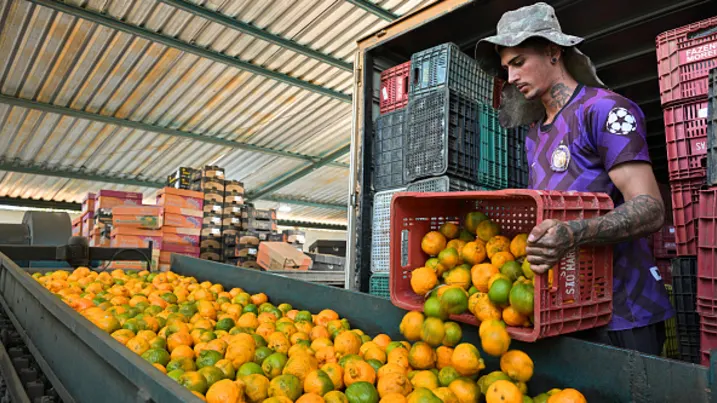Orange Juice Industry in Crisis: Soaring Prices, Climate Change, and Disease Challenge Future
Orange juice prices have recently surged to unprecedented highs, driven by a convergence of climate-fueled extreme weather, persistent supply constraints, and the devastating citrus disease known as greening. This crisis is severely impacting the orange juice industry, leading to significant challenges for producers and consumers alike.
Climate Change and Extreme Weather
The orange juice industry has been severely affected by climate change, with extreme weather events such as droughts and hurricanes disrupting production. These climate conditions have resulted in reduced orange yields, contributing to the soaring prices seen in the market. The unpredictability of weather patterns continues to pose a significant threat to consistent orange production.
Citrus Greening Disease
Adding to the industry’s woes is the persistent threat of citrus greening disease, a bacterial infection that affects orange trees, leading to decreased fruit production and quality. This disease, also known as Huanglongbing (HLB), has been a major challenge for growers, with no effective cure in sight. The spread of greening disease has exacerbated supply constraints, further driving up prices.
Exploring Alternative Fruits
In response to these challenges, some orange juice manufacturers and blenders are exploring the use of alternative fruits such as mandarins, apples, and pears to produce juice. This exploration is aimed at mitigating the impact of reduced orange supplies and maintaining product availability. However, the shift to alternative fruits presents its own set of challenges, including consumer acceptance and the adaptation of production processes.
Industry Response and Outlook
Kees Cools, president of the International Fruit and Vegetable Juice Association, emphasized the gravity of the situation: “With no short-term solution in sight and the risk of worsening disease conditions, the situation remains critical.” The industry’s focus is now on finding sustainable solutions to address both the climatic and biological challenges facing orange production.
Conclusion
The orange juice industry is navigating a complex crisis marked by environmental, biological, and market challenges. The recent price hikes and the exploration of alternative fruits underscore the urgent need for innovative approaches to sustain the industry. As stakeholders work towards long-term solutions, the future of orange juice production remains uncertain, highlighting the broader implications of climate change and disease on global agriculture.

